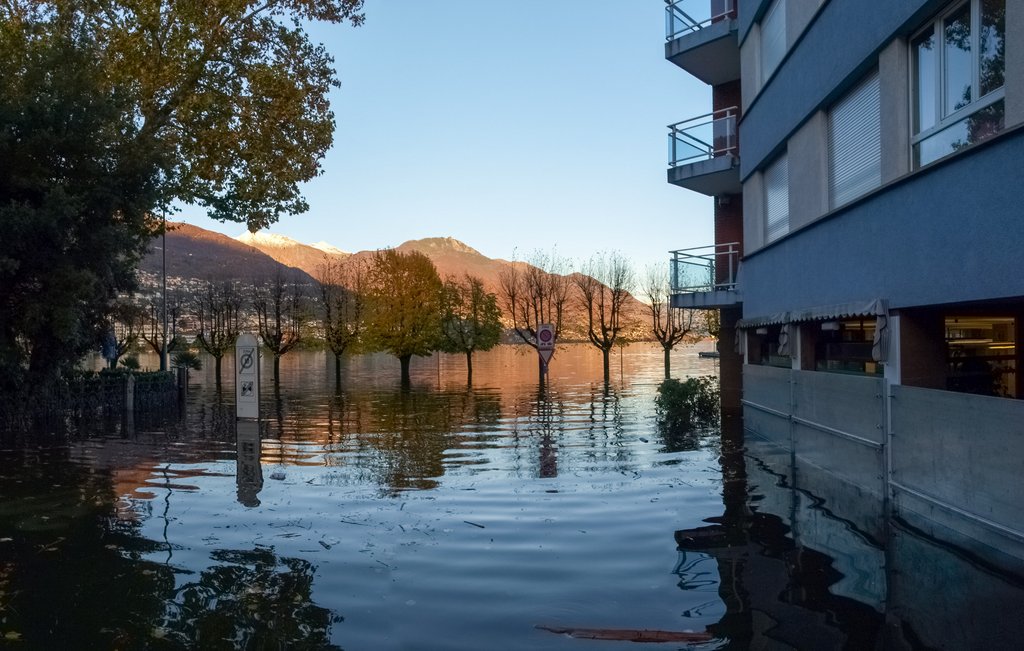Research - 21.10.2025 - 09:00
The study, entitled "Weathering the Storm: The Effects of Natural Disasters on Households under Universal Insurance", is based on extensive administrative data from Norway, where all buildings and movable property are automatically insured against natural disasters. This provides a unique opportunity to estimate the indirect effects of the disaster. Immediately after a disaster, the insurance company reimburses almost all property damage. A team of researchers from Switzerland and Norway has investigated what happens afterwards. "Using data from Norway, we were able to isolate the indirect economic consequences of natural disasters for the first time," explains Emilia Garcia-Appendini, Professor of Banking and Financial Intermediation at the University of St.Gallen (HSG). "It turned out that even with full compensation, households permanently experience a large loss of their wealth."
The results are sobering: four years after a storm or landslide, the incomes of the affected households are on average 16 % below the value of the direct damage. In the authors’ most conservative estimates, consumption falls by 1,460 USD instead of originally 720 USD. Homeowners are particularly hard hit: they reduce their consumption much more sharply than tenants – a consequence largely due to the decline in property values.
Another key finding of the study concerns the labour markets. "When disasters strongly affect companies, unemployment figures in the affected region rise significantly in the short term," says co-author Sigurd Mølster Galaasen of Norges Bank. This shows that the economic shock goes far beyond the destroyed buildings. Although insurance covers the repair of property, it does not compensate for the loss of income due to production losses or falling demand.
The Norwegian model is based on a principle of solidarity: all insured persons pay the same premium, regardless of their individual risk. This uniform premium approach is politically controversial, explains Emilia Garcia-Appendini, but it has an economically stabilising effect: "It prevents high-risk areas from becoming uninsurable."
The Swiss model of natural hazard insurance is regarded as a benchmark internationally. The rockfall in Blatten showed that the natural hazard insurance system in Switzerland still fulfils its original purpose today. The floods of 2005 were a turning point for Swiss insurers, as the Swiss Insurance Association (SVV) emphasises in a report. Since then, various flood prevention measures have been massively expanded.
"Insurance alone does not protect against loss of prosperity," concludes Emilia Garcia-Appendini. "What counts is economic resilience – in other words, how quickly income, employment and consumption recover after a disaster. However, the Norwegian experience suggests that recovery can be slow." This insight is also likely to be significant for Swiss politics.
The results of the study will also be discussed at the online-streamed symposium in Oslo on 21 October 2025. The Norges Bank Climate Conference is one of the most internationally renowned symposiums on climate and finance. Participants include Christine Lagarde, Al Gore, Bård Harstad (Stanford) and Kristin Halvorsen (CICERO). Study author Emilia Garcia-Appendini from the University of St.Gallen will present the results of this research. The aim is to develop viable ways of achieving a stable financial architecture in the age of climate risks.
Image: Adobe Stock / Mor65_Mauro Piccardi
More articles from the same category
Discover our special topics
